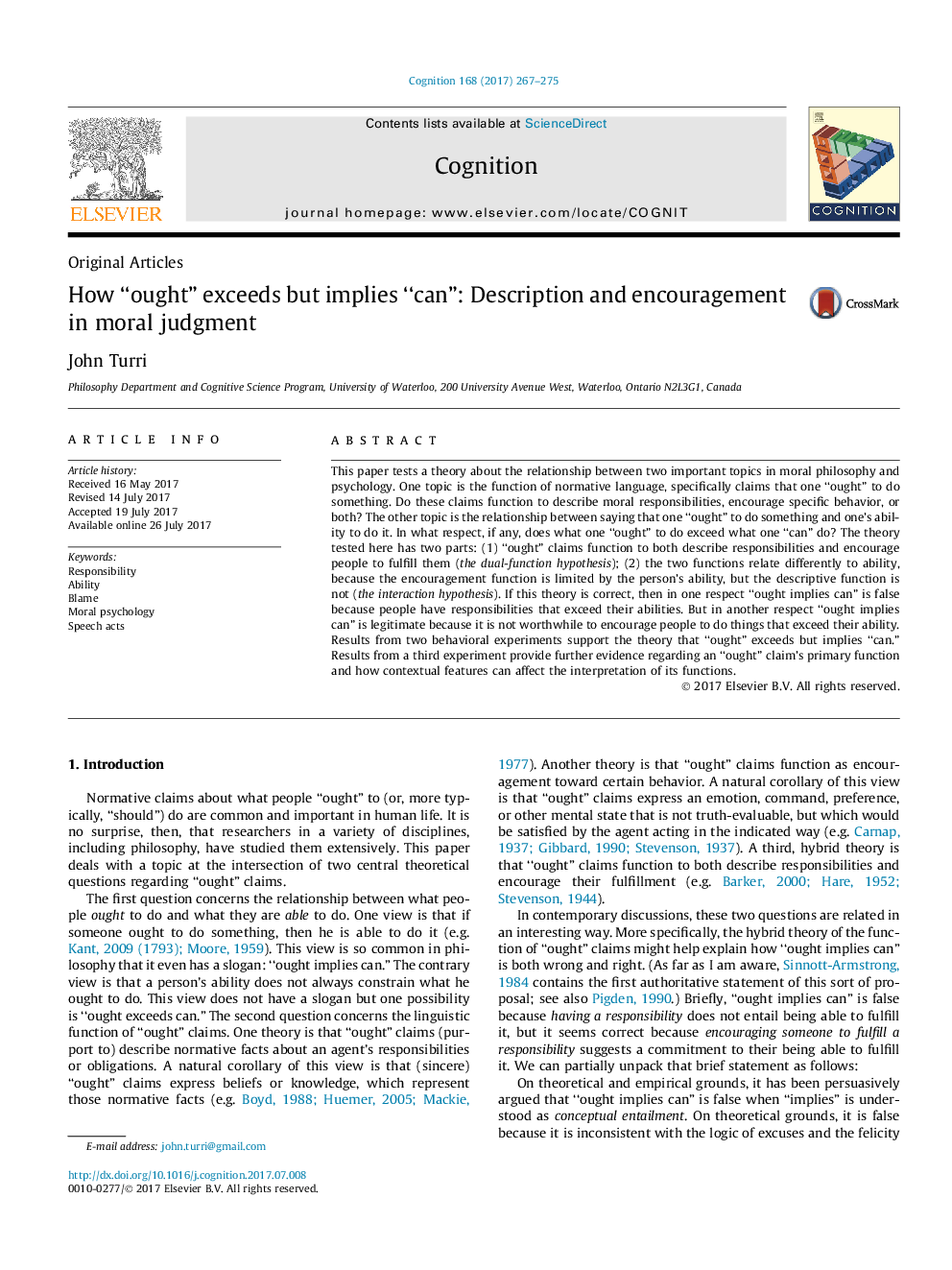| کد مقاله | کد نشریه | سال انتشار | مقاله انگلیسی | نسخه تمام متن |
|---|---|---|---|---|
| 5041439 | 1474099 | 2017 | 9 صفحه PDF | دانلود رایگان |
This paper tests a theory about the relationship between two important topics in moral philosophy and psychology. One topic is the function of normative language, specifically claims that one “ought” to do something. Do these claims function to describe moral responsibilities, encourage specific behavior, or both? The other topic is the relationship between saying that one “ought” to do something and one's ability to do it. In what respect, if any, does what one “ought” to do exceed what one “can” do? The theory tested here has two parts: (1) “ought” claims function to both describe responsibilities and encourage people to fulfill them (the dual-function hypothesis); (2) the two functions relate differently to ability, because the encouragement function is limited by the person's ability, but the descriptive function is not (the interaction hypothesis). If this theory is correct, then in one respect “ought implies can” is false because people have responsibilities that exceed their abilities. But in another respect “ought implies can” is legitimate because it is not worthwhile to encourage people to do things that exceed their ability. Results from two behavioral experiments support the theory that “ought” exceeds but implies “can.” Results from a third experiment provide further evidence regarding an “ought” claim's primary function and how contextual features can affect the interpretation of its functions.
Journal: Cognition - Volume 168, November 2017, Pages 267-275
